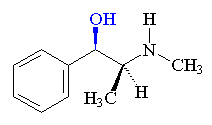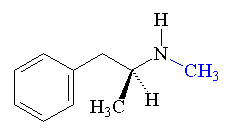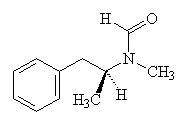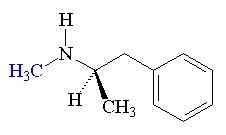Entries Tagged as 'Methamphetamine'
April 18th, 2008 · Comments Off on References
Introduction to Methamphetamine/ Discovery and Early Usage/ World War II/ 1950’s to Today/ Meth’s affect on History/ How it is Made/ References
Anglin MD, Burke C, Perrochet B, Stamper E, Dawud-Noursi S. (2000). History of the methamphetamine problem. Journal of Psychoactive Drugs. 32(2):137-41
Cunningham JK, Liu LM. (2003) Impacts of Federal ephedrine and pseudoephedrine regulations on methamphetamine-related hospital admissions. Addiction, 98, 1229-1237.
Doyle, D (2005). Hitler’s Medical Care. Journal of the Royal College of Physicians of Edinburgh 35: 75-82.
Iversen, L. (2006) Speed, Ecstasy, Ritalin, Oxford: OUP.
Meyer, U. (2005). Fritz hauschild (1908-1974) and drug research in the ‘German Democratic Republic’ (GDR). Pharmazie. 60(6): 468-72
Tamura, M. (1989). Japan: stimulant epidemics past and present. Bulletin on Narcotics 83-93. United Nations Office on Drugs and Crime.
Winslow BT, Voorhees KI, Pehl KA (2007). Methamphetamine abuse. American family physician 76 (8): 1169–1174.
Methamphetamine use dates to post-WWII era: drug little-known risk factor in early AIDS days. (2002). AIDS Alert 17(10): 125-127
http://www.chm.bris.ac.uk/motm/methamphetamine/methv.htm
http://en.wikipedia.org/wiki/Methamphetamine
http://www.emedicine.com/EMERG/topic859.htm
[Read more →]
Categories: Methamphetamine
April 18th, 2008 · 1 Comment
Categories: Methamphetamine
April 18th, 2008 · Comments Off on Meth’s affect on History
Introduction to Methamphetamine/ Discovery and Early Usage/ World War II/ 1950’s to Today/ Meth’s affect on History/ How it is Made/ References
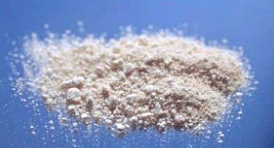
Methamphetamine is unique as it went from being at the heights of fame to the heights of infamy in a mere forty years. It is yet another example of how scientists (or society depending on your point of view) were seemingly too preoccupied with the short-term benefits to question or wonder about the effects of long-term use.
[Read more →]
Categories: Methamphetamine
April 18th, 2008 · Comments Off on 1950s-Today
Introduction to Methamphetamine/ Discovery and Early Usage/ World War II/ 1950’s to Today/ Meth’s affect on History/ How it is Made/ References
During the 1950s, there were two completely opposite views of amphetamines occurring in the world. In Japan, methamphetamine abuse had risen to epidemic levels, following the release of the large military stockpiles to the public. In 1951, Japan’s Health Ministry banned its manufacture and possession inadvertently fueling a growing connection between drug trafficking and Japan’s criminal underworld. At the same time, the United States had no problem allowing the distribution of amphetamine as a way to fight off fatigue or as a way to lose weight. It was not until the mid to late 1960s that general society began to see amphetamine as a danger rather than a benefit. Following the Controlled Substances Act of 1970, law authorities in the US began cracking down on methamphetamine production and distribution. It is at this time to we begin to see a rise in the household “labs” which produce methamphetamine (typically in rural parts of the United States). Further acts in the US include: the Federal Controlled Substance Analogue Enforcement Act of 1986 (which sought to curb use of designer drugs), and the Combat Methamphetamine Epidemic Act of 2005 (which placed restrictions on the amount of pseudoephedrine and ephedrine one could buy within a specific time).
[Read more →]
Categories: Methamphetamine
April 18th, 2008 · 1 Comment
Introduction to Methamphetamine/ Discovery and Early Usage/ World War II/ 1950’s to Today/ Meth’s affect on History/ How it is Made/ References
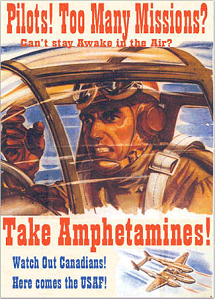
With the start of World War II, amphetamine, despite its numerous side effects and the high possibility of abuse, was used consistently and often by all sides throughout the war. Pervitin, as the Germans called it, was the trade name for chocolates laced with methamphetamine. The Japanese used and stockpiled large amounts of amphetamines throughout the war and the United States promoted usage, as the poster above mentions, as a “patriotic” activity in order to combat fatigue. It is unknown whether the various armies were even aware of the long-term effects of amphetamine and methamphetamine use or whether they simply saw it as a short term solution.
[Read more →]
Categories: Methamphetamine
April 18th, 2008 · 1 Comment
Introduction to Methamphetamine/ Discovery and Early Usage/ World War II/ 1950’s to Today/ Meth’s affect on History/ How it is Made/ Reference

Nagai Nagayoshi (1844-1929)
1887- The related compound, amphetamine, is synthesized by Lazar Edeleanu in Germany.
1893- Nagayoshi succeeds in synthesizing methamphetamine from ephedrine in Japan.
1919- Akira Ogata is able to create methamphetamine into a crystallized form.
1928- US Company (Smith, Kline and French) releases Benzedrine inhalers, containing methamphetamine.
1937- Amphetamine is available in tablet-form by prescription.
[Read more →]
Categories: Methamphetamine
April 18th, 2008 · Comments Off on Introduction to Methamphetamine
Categories: Methamphetamine

